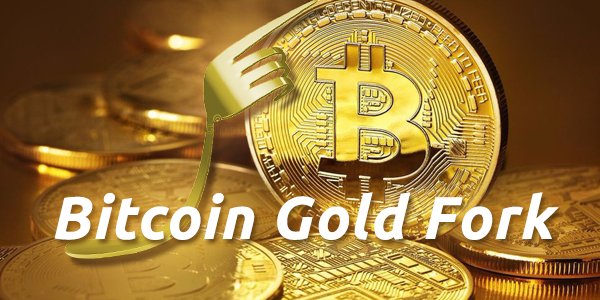All Forked Up - Everything you need to know about Bitcoin Gold

What is a Hard Fork?
In relation to blockchain technology, a hard fork is the name for a permanent divergence from the previous version of the blockchain, where nodes running previous versions will no longer be accepted by the newest version. This creates a virtual fork in the blockchain, where one path follows the new, upgraded blockchain and one path continues along the old path.
What is Bitcoin Gold?
Bitcoin Gold, the invention of Jack Liao, is a fork of Bitcoin scheduled to occur on October 25. Just like with Bitcoin Cash, when the fork occurs, Bitcoin holders will be given a number of Bitcoin Gold coins equal to their Bitcoin balance at the time. Bitcoin owners who acquire Bitcoin Gold may choose to either keep the new coins or sell them for Bitcoin. Like Bitcoin Cash, Bitcoin Gold will be an altcoin. Most Bitcoin miners will not leave the Bitcoin network to mine Bitcoin Gold, and as of today, most major exchanges have not stated that they will support Bitcoin Gold. As such, there is, for all intents and purposes, no danger at all of Bitcoin Gold having any lasting negative effect on the original Bitcoin chain.
The goal of Bitcoin Gold is to solve miner centralization through a proof-of-work change. Today, one of the growing concerns about Bitcoin is that it is becoming more and more centralized - the opposite of its original intention. Bitcoin miners are starting to use more and more powerful specialized application-specific integrated circuit (ASIC) computers to mine Bitcoin - usually specialized mining rigs such as the popular Bitmain Antminer series. The Bitcoin Gold developer team has chosen Equihash for their proof-of-work, a memory-hard algorithm which is ASIC resistant, also used by ZCash. The idea is to make CPU and GPU mining lucrative again, giving power back to the everyday user and decreasing miner centralization.
How Will Bitcoin Gold Affect Me?
Bitcoin Gold will only affect you if you hold Bitcoin when the Bitcoin Gold team picks the hard fork block - sometime around October 25. You will receive the exact number of Bitcoin Gold tokens as the amount of Bitcoin you hold at that block. The Bitcoin Gold team is planning strong replay protection, so replay attacks shouldn't be a problem.
If Bitcoin Gold isn't worth much, it's probably not worth doing anything. But if it's actually worth something, wallet developers will most likely write tools to allow you to access your Bitcoin Gold. If you keep your Bitcoin on an exchange, the exchange will most likely credit you with your Bitcoin Gold eventually, especially if it turns out to be somewhat valuable. However, the safest bet is still to transfer your Bitcoin to an offline wallet, which you control the private keys for, if you want to make sure that you get your Bitcoin Gold.
Will Bitcoin be Dethroned?
After Bitcoin Cash forked on August 1st this year, Lightning Network developer Tadge Dryja argued that more forks would spring up, but for another reason: money. With Bitcoin Gold fast approaching, and Segwit2x slated for November, it seems that Dryja's prediction is slowly becoming reality.
Although Bitcoin Cash and Bitcoin Gold are technically forks of Bitcoin, they do not affect the original Bitcoin network in any way. They are only forks in the sense that they use most of Bitcoin's code, and distribute their currency proportionally to all Bitcoin holders. Because the term "fork" usually refers to an attempt to upgrade a network, invalidating the old blockchain, using "fork" to describe Bitcoin Cash and Bitcoin Gold is somewhat misleading. A better word might be "airdrop". An airdrop is a way to distribute coins when an altcoin is created - since the only thing Bitcoin Cash and Bitcoin Gold use the Bitcoin blockchain for is initial token distribution, they are really more like airdrops than forks.
In other words, the original Bitcoin network is in no way affected by these forks. Bitcoin's supply will not increase - there will still only ever be 21 million Bitcoin. And the Bitcoin blockchain will continue to soldier on, just as it has since the very first block was mined in 2009.